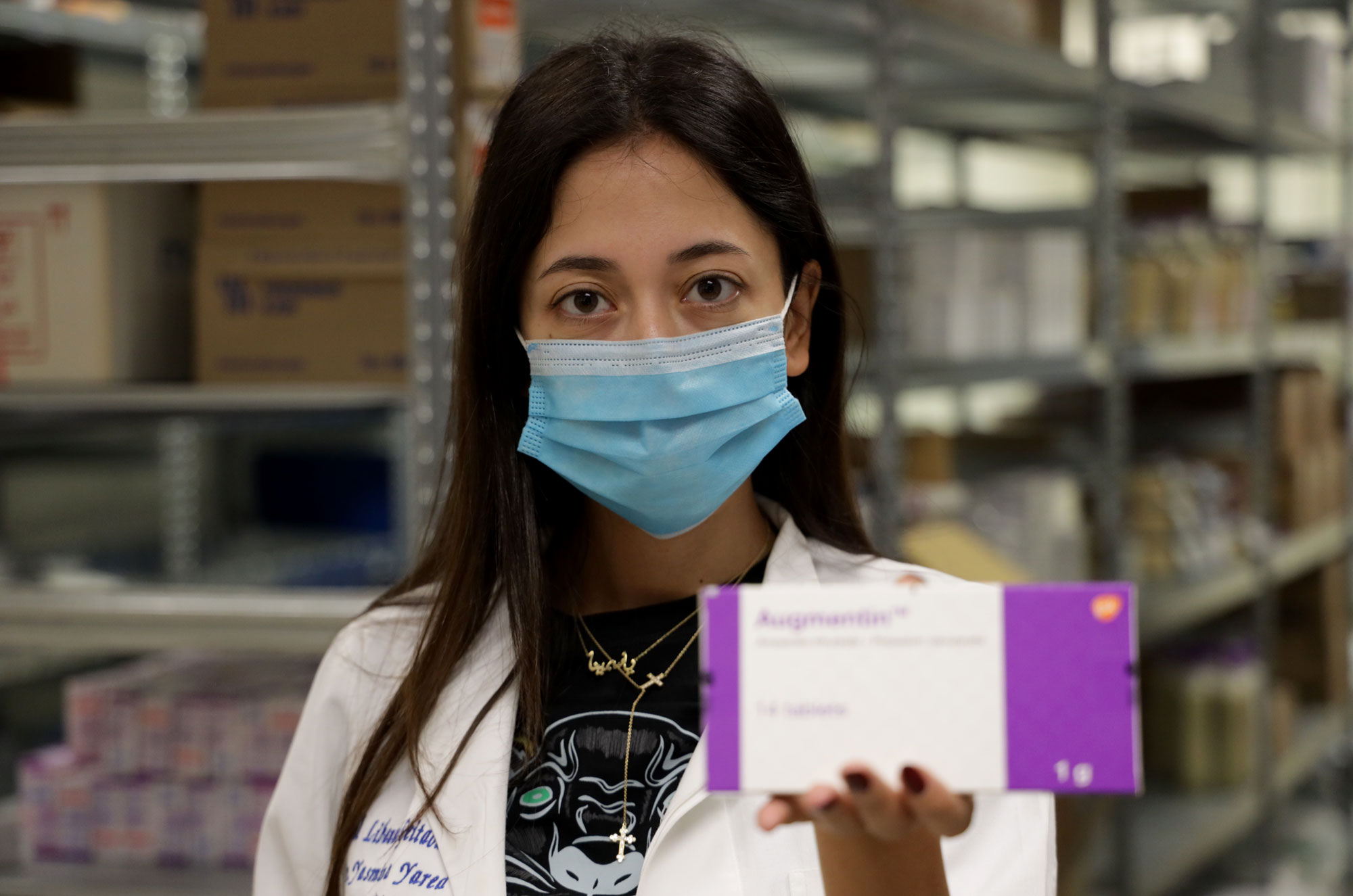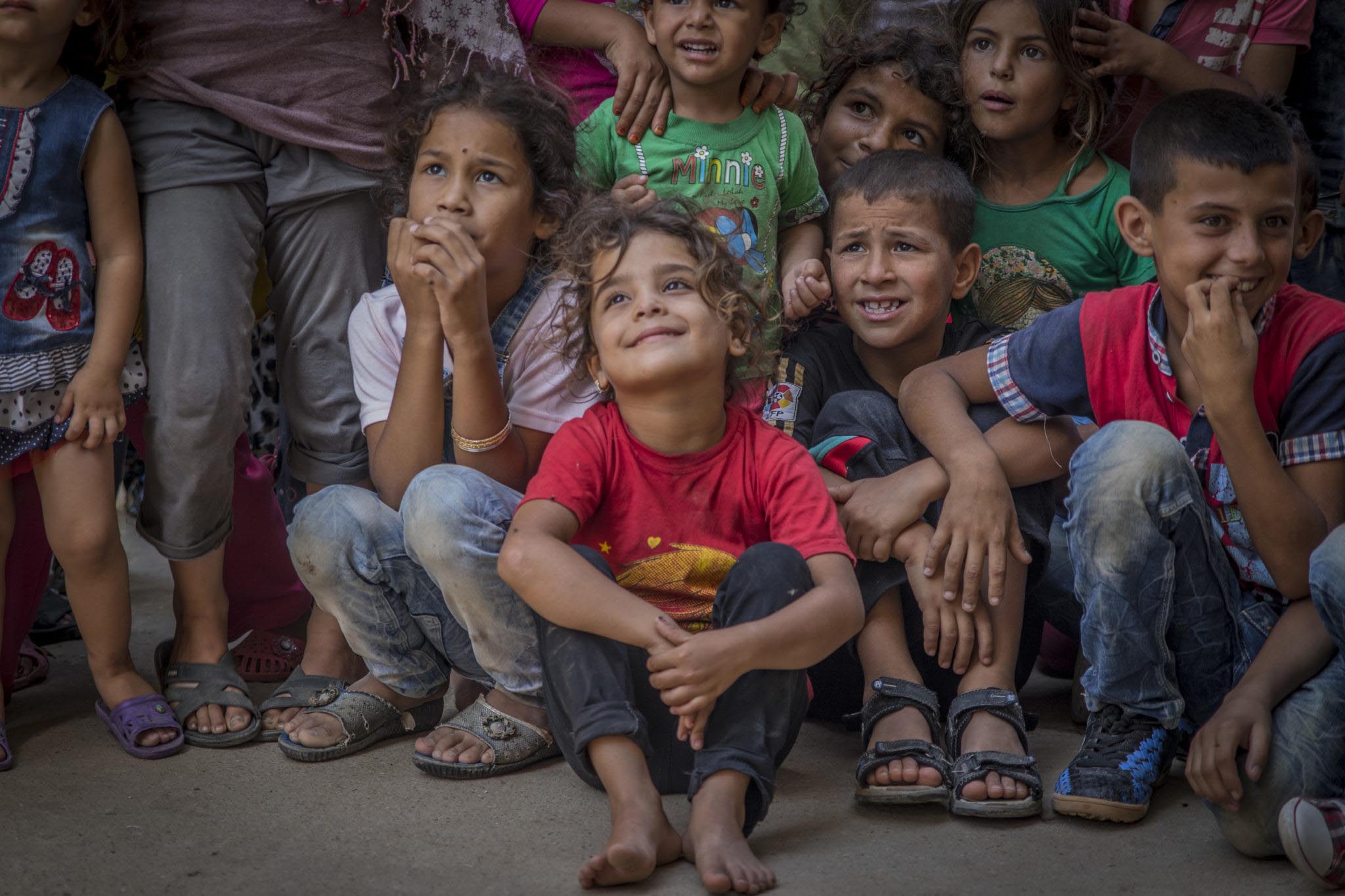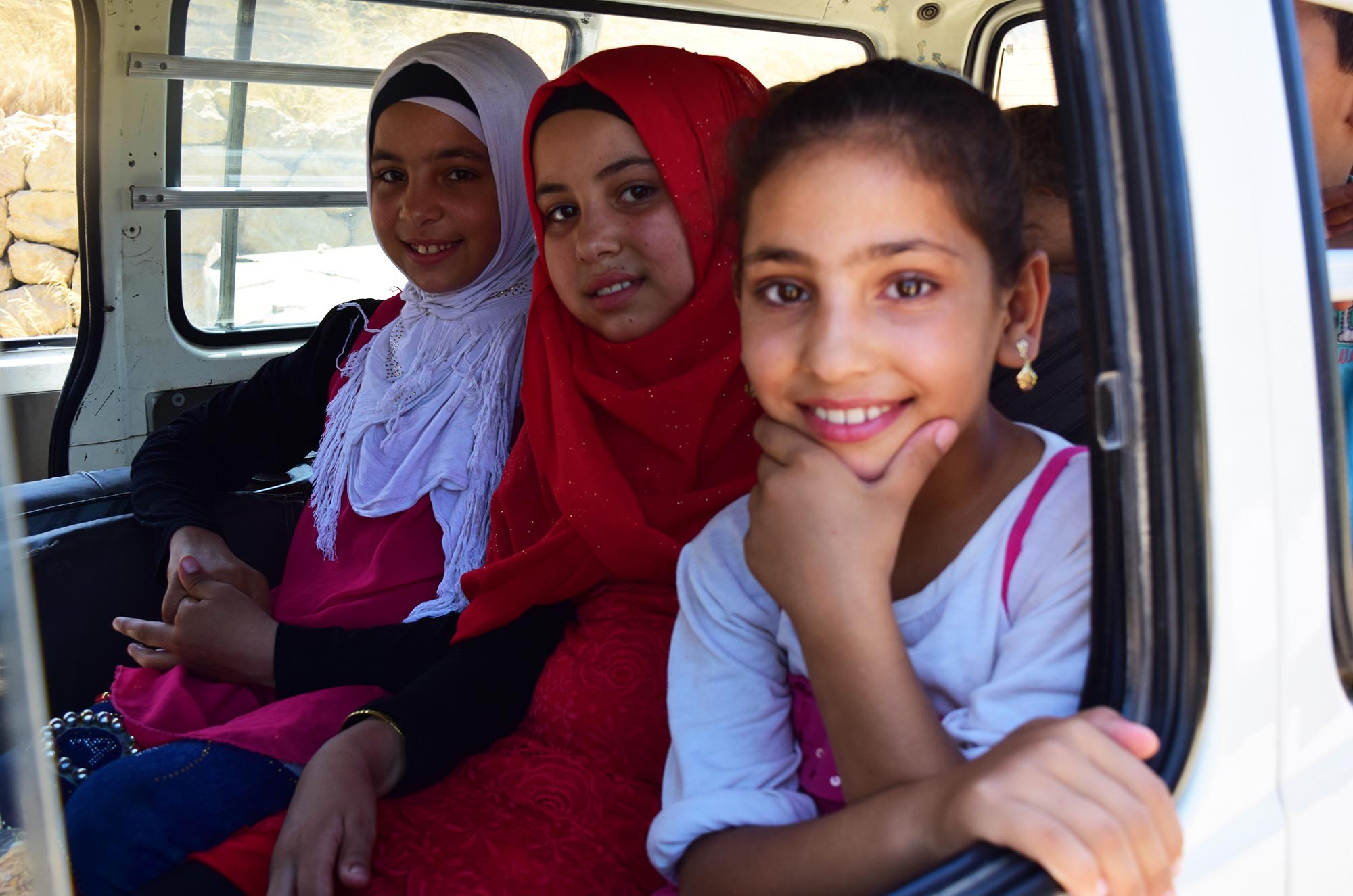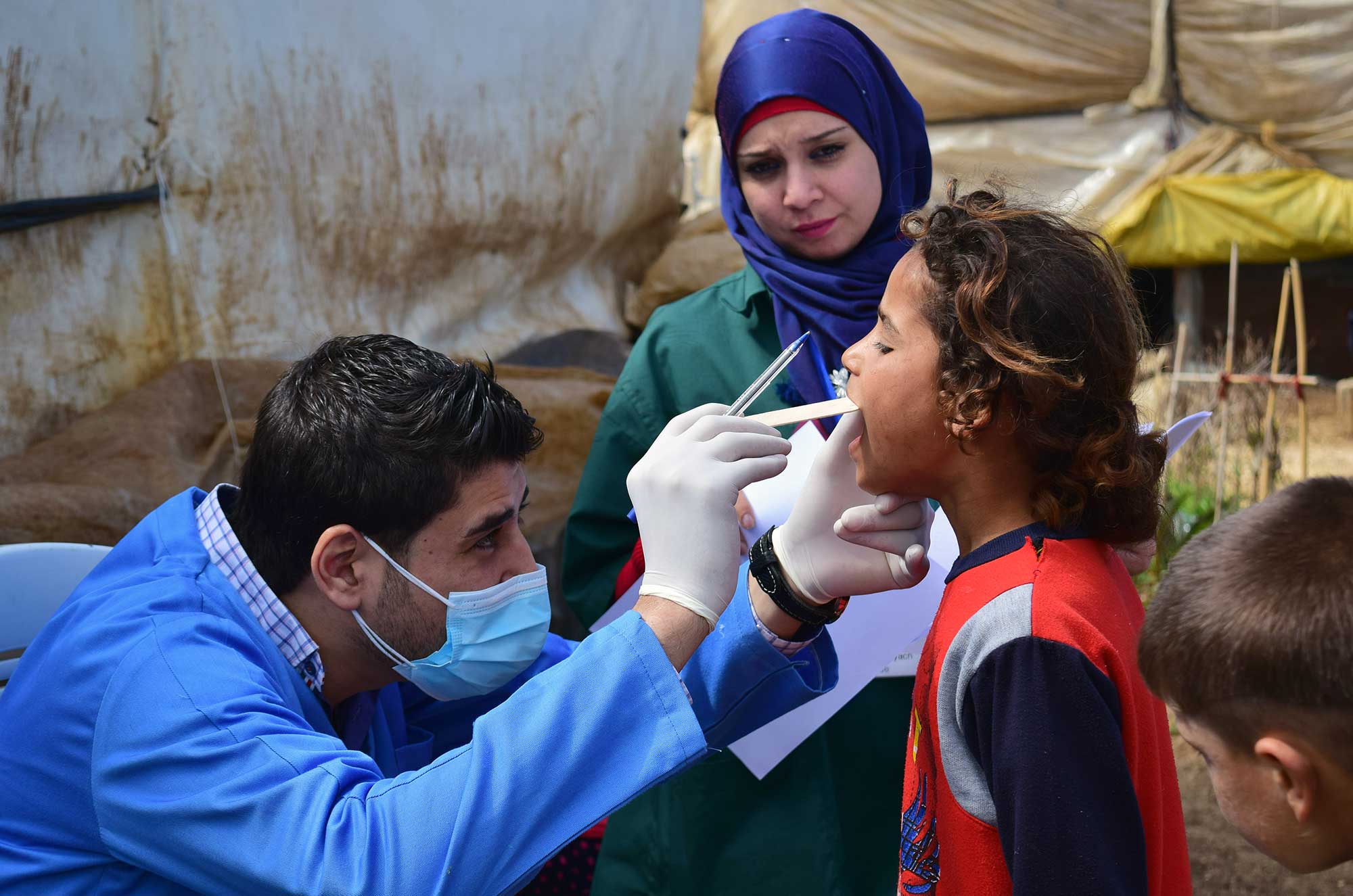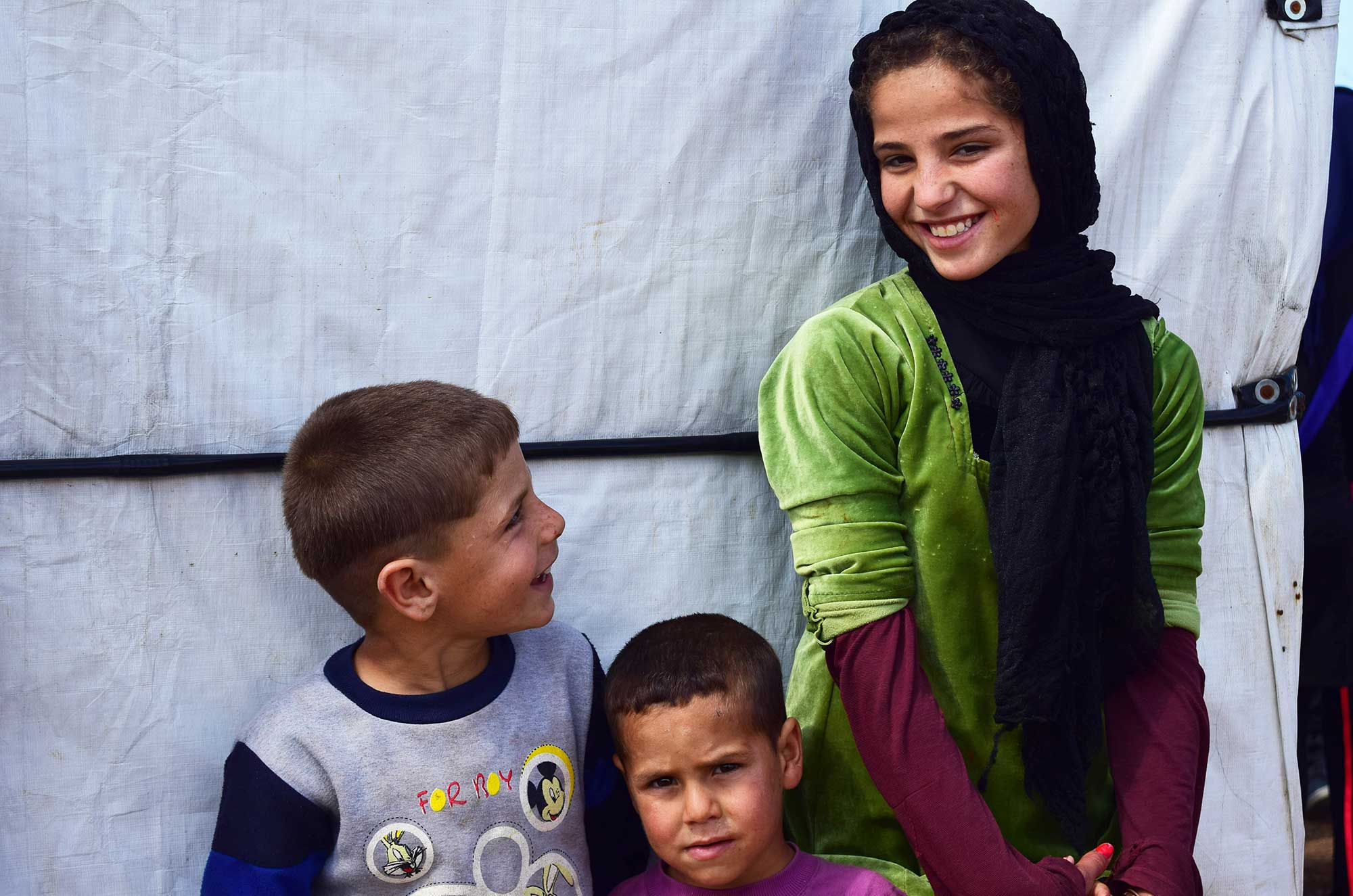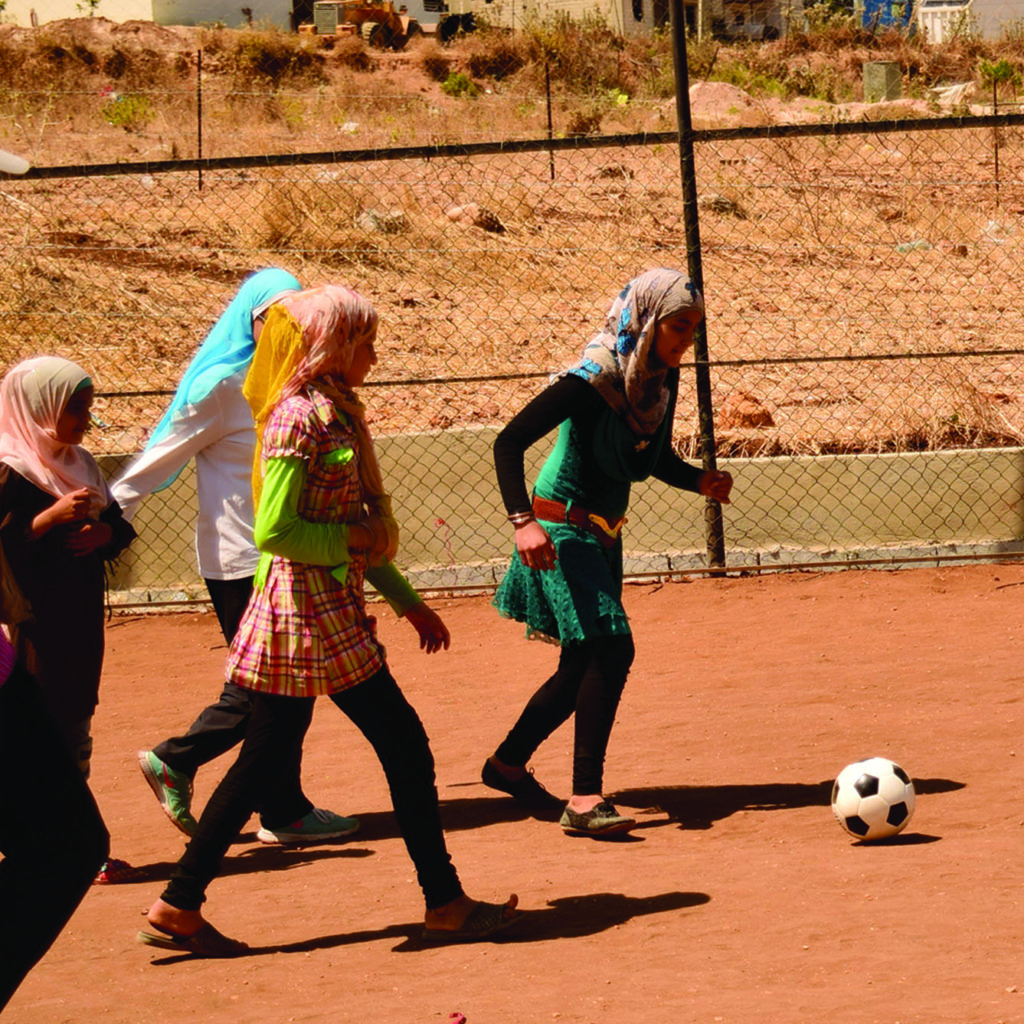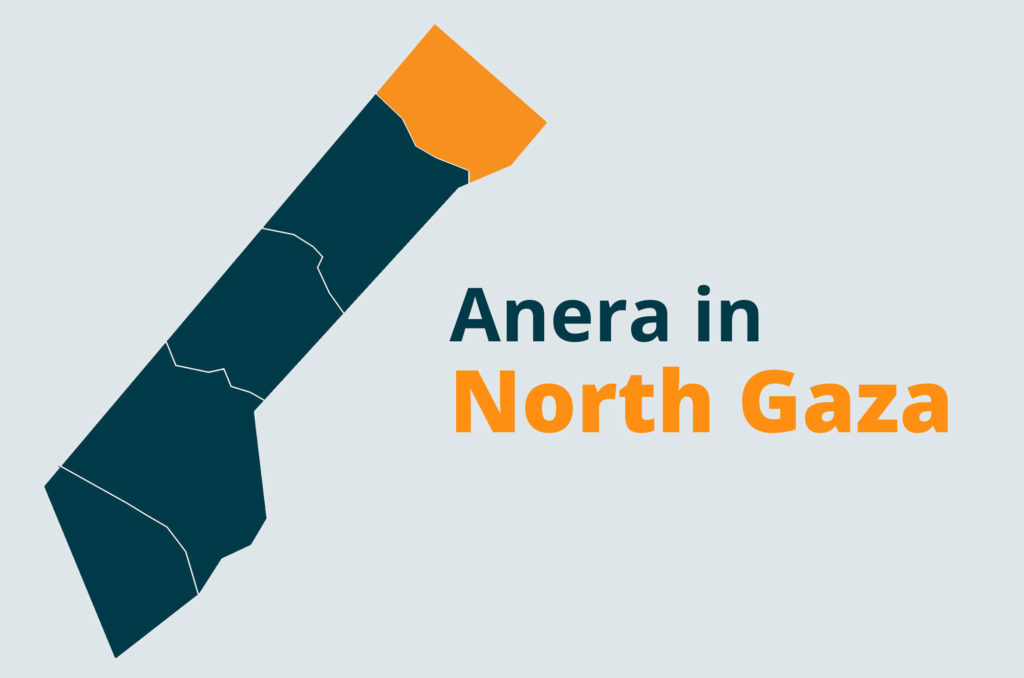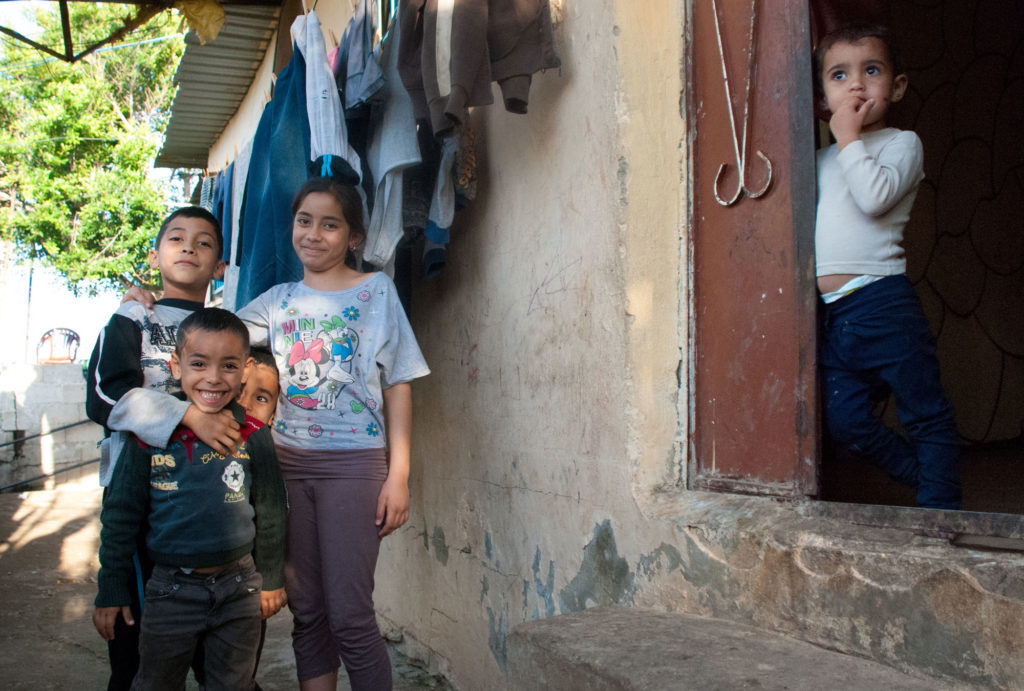Jan, 2025
The northernmost and most rural governorate of Lebanon, Akkar is known for its rich history and beautiful landscape, which is now home to thousands of farming communities and Syrian refugees.
Akkar Governorate | محافظة عكار
Akkar is the northernmost governorate of Lebanon, bordering Syria. Known for its rich history and sprawling forests, ancient Roman, Greek, and Ottoman historical sites can be found untouched throughout the breathtaking landscape. As Lebanon’s most rural region, the population of nearly 430,000 is widely dispersed throughout 100 municipalities of small towns and farming villages. Some 80% of the governorate’s population lives in rural areas, with many making their living growing crops such as cereal grains, vegetables, tobacco, and olives.
Akkar was created in 2003 when the territory was separated from the North Governorate. As Lebanon’s least urbanized area, the region has been historically marginalized and neglected. Akkar has the country’s highest illiteracy rate and suffers from lack of basic infrastructure and services. The unemployment rate is punishingly high, at almost 60%. The border region has been transformed since 2011 by the conflict in Syria that created so many refugees. Remarkably, over 40% of the population in Akkar is now made up of refugees.
Anera has been working in Lebanon since 2006. After several years of community development and educational programming, Anera opened an office in Akkar’s capital city of Halba in 2016. Since then, Anera has implemented programs in all of our priority areas, from water and sanitation to agriculture and emergency response.
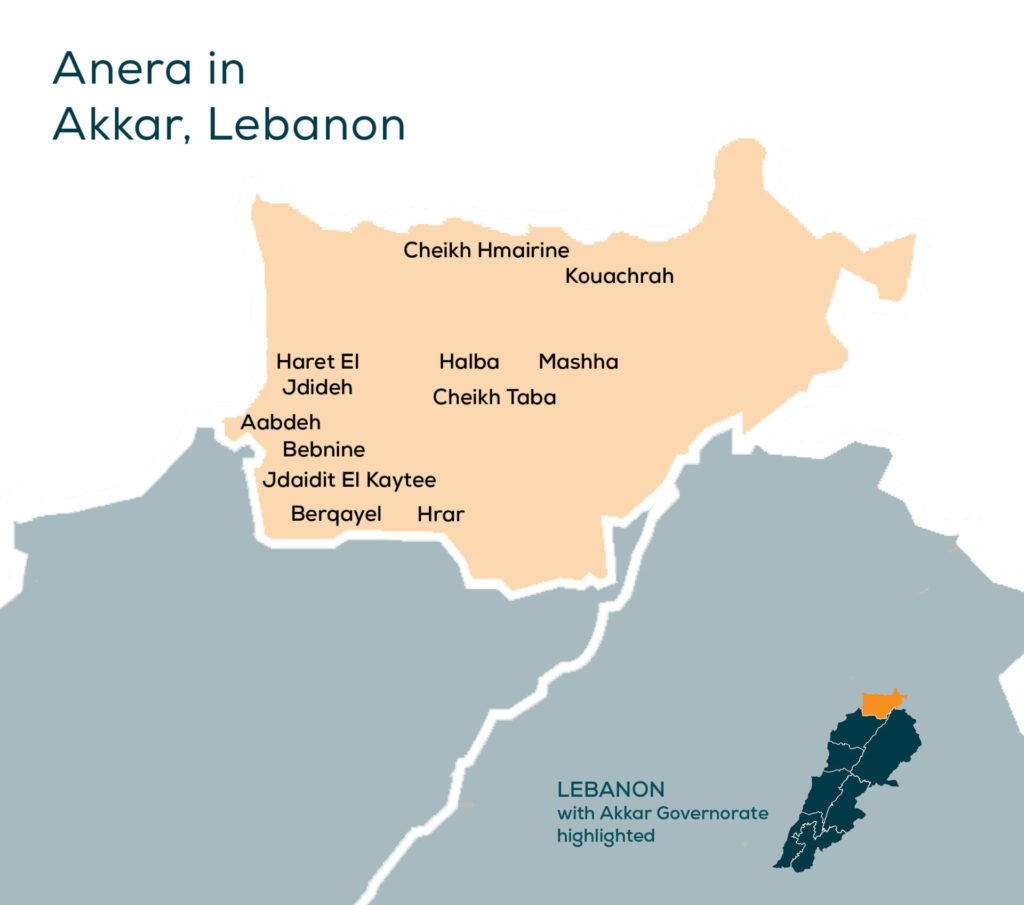

Education
Non-formal Education and Life Skills Development
With poor public infrastructure and a lack of jobs, Akkar was ill prepared to host refugees. Yet, its proximity to the Syrian border has led to a massive influx in the region. Syrian, Palestinian and Lebanese youth in Akkar struggle to access basic services and have limited opportunities to obtain quality education.
In 2015, Anera began implementing a non-formal education and life skills development program in Akkar. The program focuses on serving youth between 14 and 18, using short modules to teach basic, essential skills. The trainings help youth improve their reading, writing, math and IT skills, all of which are tailored to improve their employability. The program brings together youth from all backgrounds for classes that build community and help young people gain the skills they need to take control of their futures. The timing and subjects of classes are based on the everyday reality the students face.
Anera identified and established partnerships with 21 organizations in Akkar to implement the program. In 2015 alone, we reached nearly 600 youth.
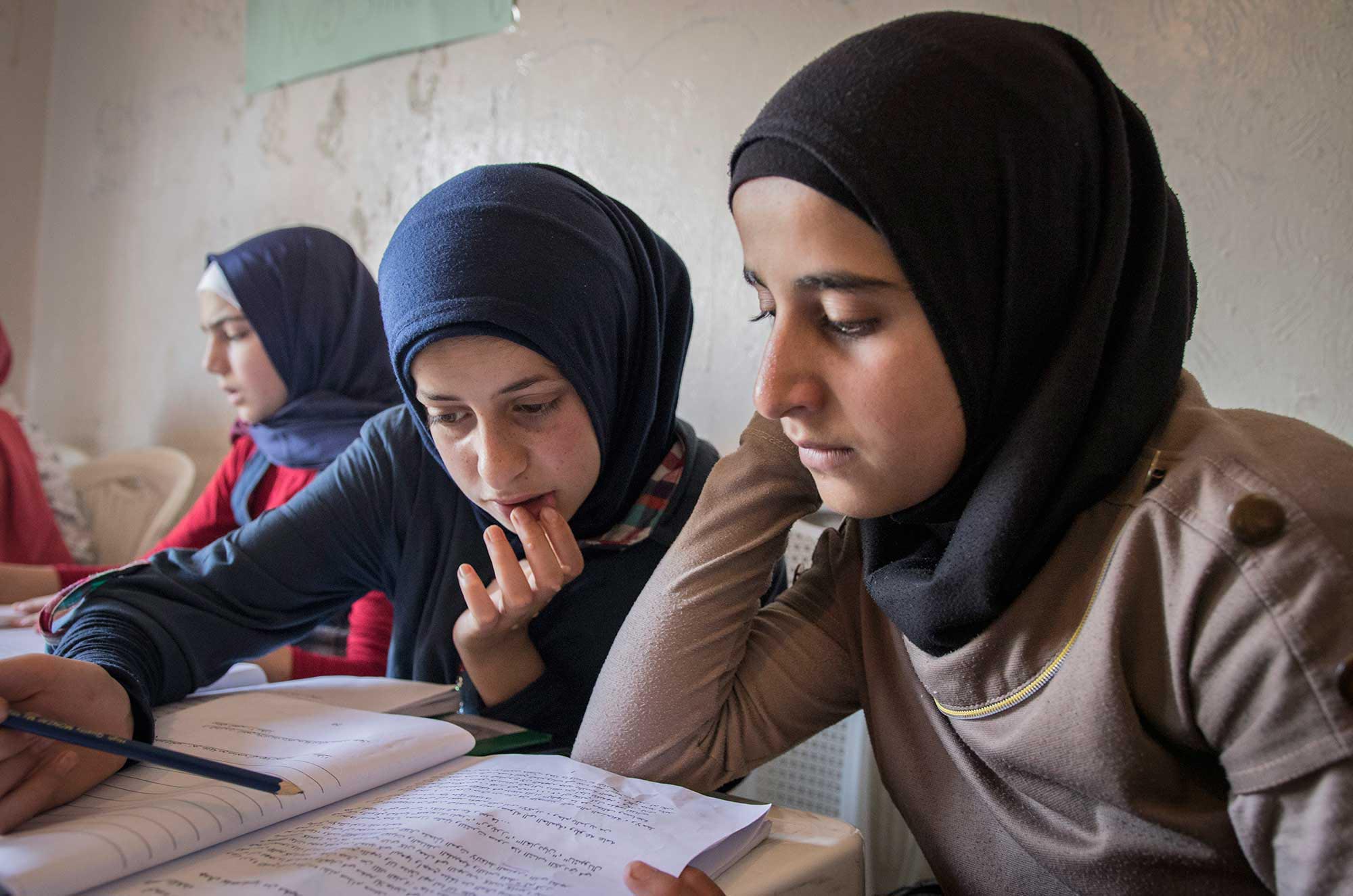

Back-to-school Campaign
Anera implemented a back-to-school campaign across Akkar in 2017. The campaign fostered students’ continued education by supporting students through multifaceted programming, providing daily meals, training adults and post-secondary students, rehabilitating old preschools and even building new ones in areas without facilities so that families can build a hopeful future. Anera pioneered the recruitment and training of 179 youth outreach workers (drawn from within the program participants) to serve as outreach volunteers and participate in community mobilization. Through this program, Anera reached thousands of youth in Akkar, referring them back to formal schooling and equipping them with the tools necessary to succeed.
Technical and Vocational Educational Training Program (TVET)
Anera also pioneered a technical and vocational educational training (TVET) program in Akkar. First implemented in 2018, the program takes a comprehensive approach to youth education, including access to a variety of services such as market-driven TVET courses, apprenticeship programs, and start-up kits that we give to youth upon graduation. Anera has mainstreamed apprenticeship as an integral part of the program, which complements classroom instruction on theory and basic skills with hands-on experience at an actual workplace. The program ranges from nursing and coding courses to sewing, providing a wide range of students with the education they need to move forward in their careers. Participating youths learn new skills and earn a wage to put them to use right away to help their community.
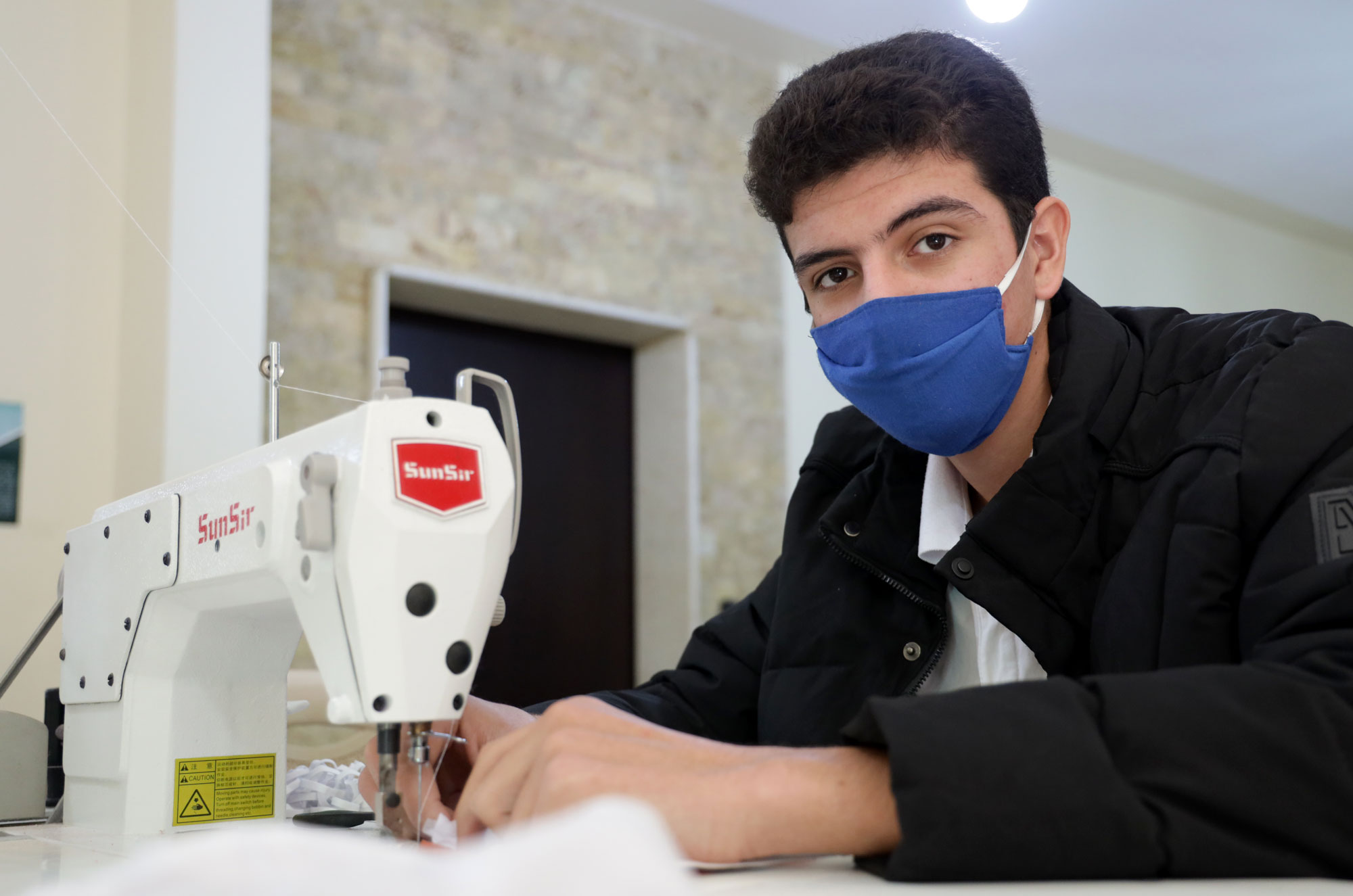

Preventing Early Marriage
Early marriage is a problem in Lebanon. The country’s cascading series of crises has forced too many families — particularly Syrian refugees but increasingly vulnerable Lebanese and Palestinian refugee communities as well — to resort to numerous unhealthy coping and survival mechanisms, including early marriage. Anera is trying to counter the issue with assistance programs like the Sama Project, launched in 2021. Throughout the course of the two-year program, Anera is carefully assessing the effect that cash assistance has on girls' access to education and, thus, their vulnerability to early marriage.
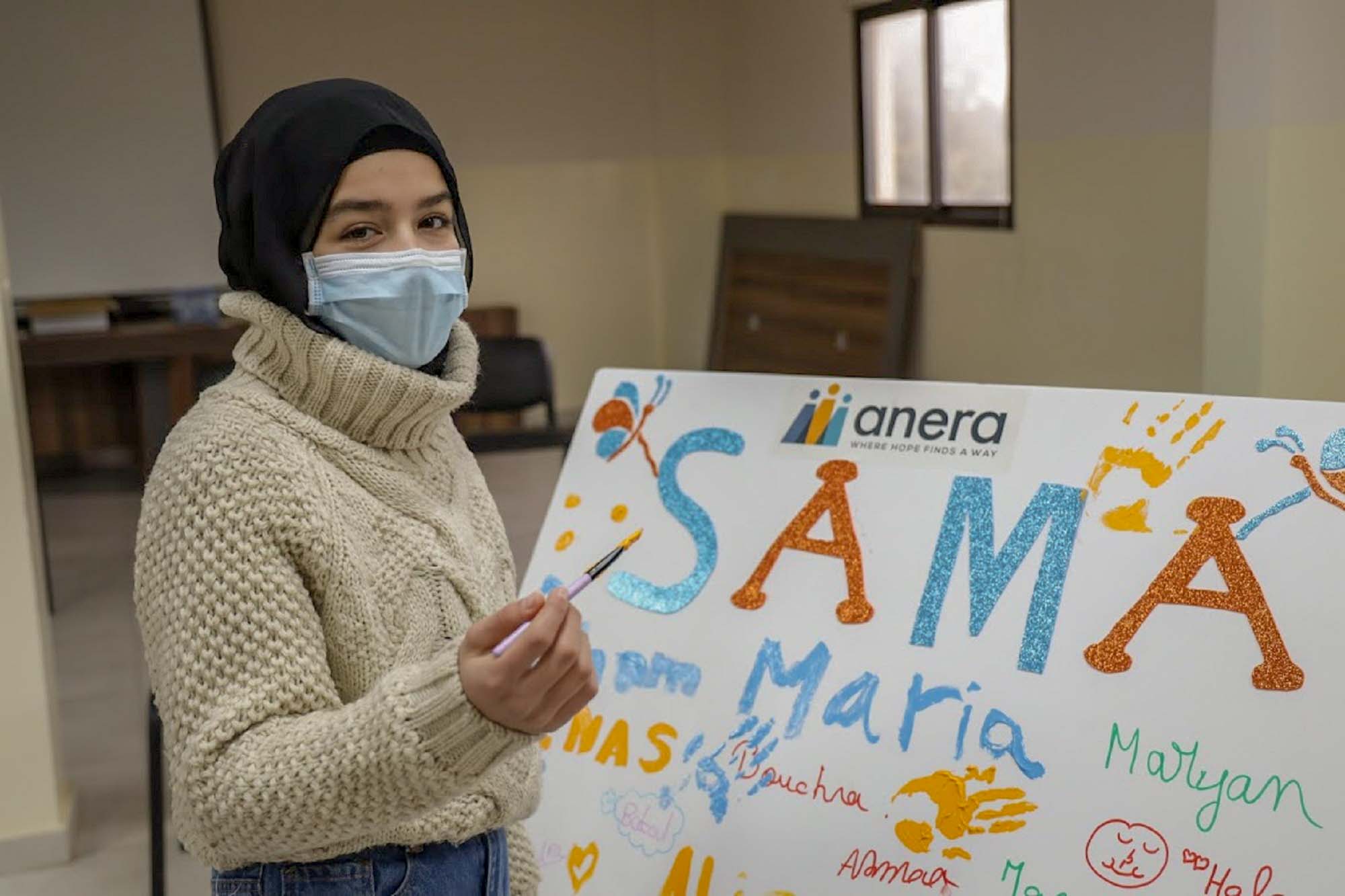

The goal is to help 673 girls avoid early marriage by keeping them in school and focused on their education. The message is simple: an educated girl, with career prospects, can contribute to her family's financial security more than a young girl forced to drop out of school at an early age and become a mother before she turns 17.
Anera has been working with schools in Akkar to address the issue of forced marriage, using education as a tool to combat the problem. Our team identifies families who will receive cash assistance if they commit to enrolling their girls in school. They also must not force their daughters into marriage before the age of 18. The Sama Project looks to impact the lives of girls in Akkar through education and assistance.
Agriculture
Anera has followed a holistic approach in supporting agriculture in Akkar. Lebanon’s economic collapse has forced families to rely on local produce because they can no longer afford the cost of imported goods. And in a farming region such as Akkar, the agricultural sector is integral to the economic wellbeing of the population. Anera’s agricultural project in Akkar provides Lebanese farmers with the technical capacity and resources to increase production and enhance the quality of their produce.
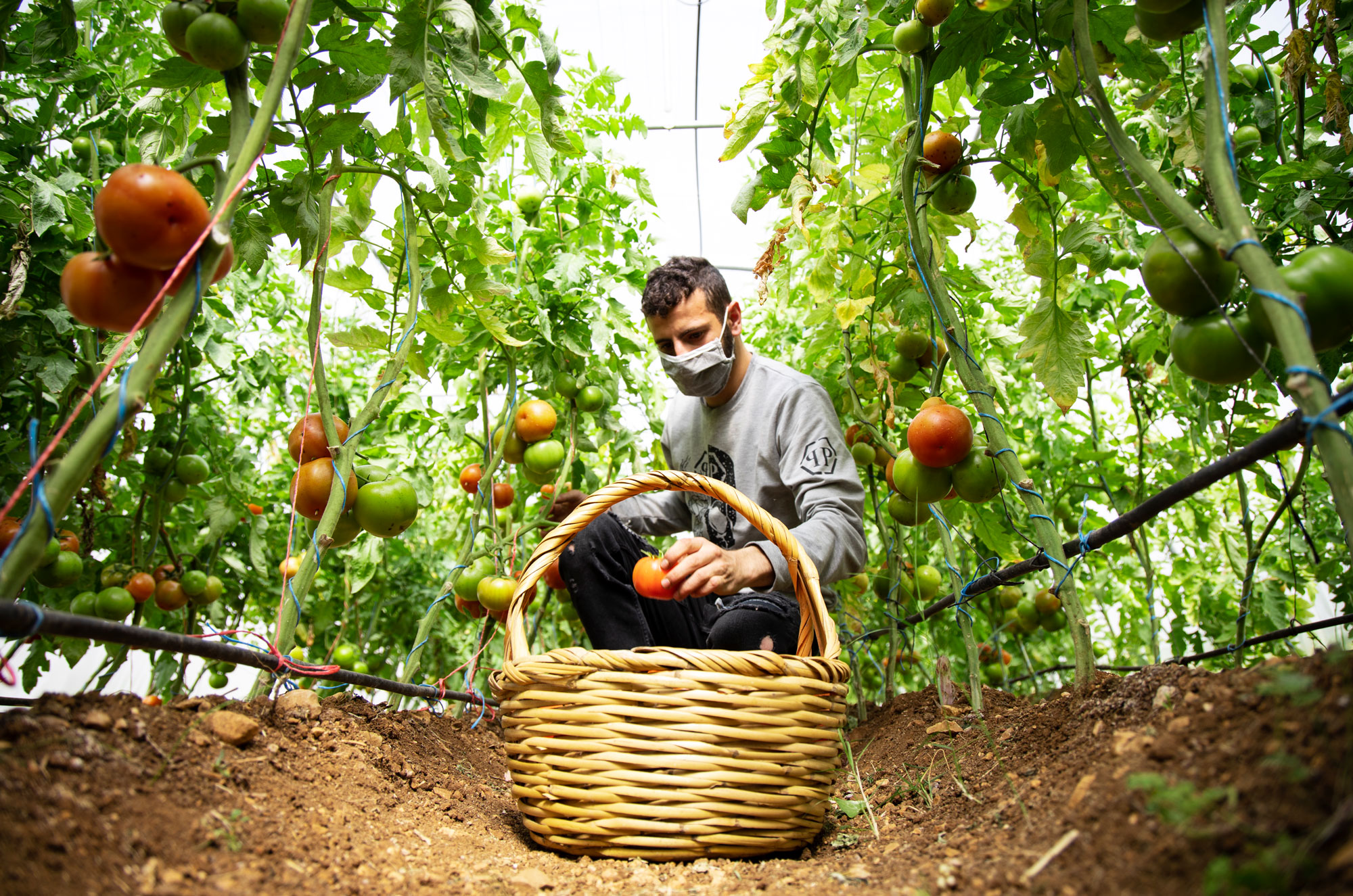

Agriculture Training
To address the rising food insecurity, Anera’s Akkar team has partnered with the Ta’alof Association to deliver an introduction to agriculture vocational course in the town of Berqayel. Launched in 2021, the 60-day training provides an opportunity for young people in Lebanon to learn about their land, conventional and organic fertilizers, how to plant a home garden and which crops are well adapted to grow locally.
Through hiring agricultural engineers to teach farmers best practices in how to manage their land and increase production, the program focuses on providing the knowledge and skills needed for farmers to succeed on their own. Vocational training allows the program to deliver long-term, sustainable solutions for the agricultural community.


"When I heard about the agriculture course, I immediately knew I wanted to join. I really want to learn how to cultivate my own land. I also believe that we need many more properly-done greenhouses here.”
- Fatima, 22, vocational education student
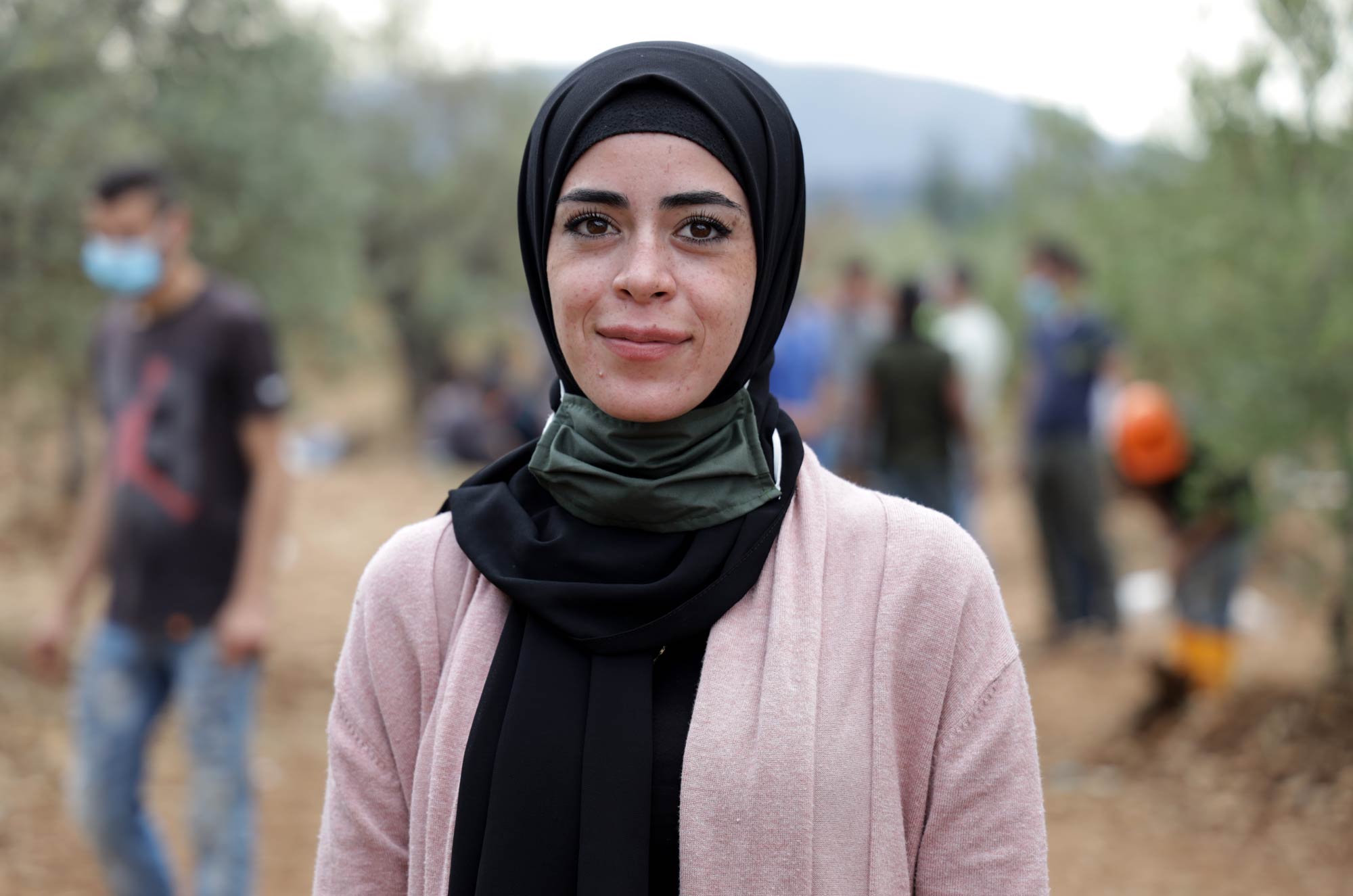

Greenhouse Installation
In addition to vocational training, Anera also widened our scope of support through supporting landowners with the installation of greenhouses and providing farmers with the necessary seeds and materials to get started. In receiving the resources needed to build up their businesses, farmers are then able to hire others in need of employment, and many hire Syrian refugee laborers. Many Syrian refugees are stranded in Lebanon because of the legacy of the civil war back home and struggle with unemployment, making our agricultural program the perfect place for them to find job opportunities.
In 2022, just one year after founding the project, Anera increased earning potential for 37 farmers in Akkar through new greenhouses, irrigation systems, seedlings, fertilizers, and training.
Health
Solar on Healthcare Facilities
Blackouts are a common occurrence in Lebanon, causing problems for families in a myriad of ways. For healthcare centers, a blackout can severely compromise the quality of service and can even be life-threatening. To combat the problem, in the early 2020s, Anera installed solar power systems at clinics across Lebanon.
In Akkar, we installed solar panels, inverters, and batteries at the Hassan Khaled Clinic in Hishe, the Mouwasat Al Khairy healthcare center in Hrar, and Tal Hayat Dispensary in Haret El Jdideh. The clinics serve Syrian and Palestinian refugees, migrants from other countries, and Lebanese patients. More than 80,000 people rely on their services. And some patients have chronic illnesses that require regular medical care like hypertension, cardiovascular and circulatory diseases, diabetes, hyperlipidemia, and respiratory tract diseases.
Delivering Medicines
The majority of the population lives in poverty and nonprofit healthcare providers struggle to provide quality services as demand has increased. And most patients in Lebanon cannot keep up with the rising prices for medicines. Anera helps hospitals and clinics throughout Lebanon to serve their patients better by stocking their pharmacies with millions of dollars worth of donated medicines and other healthcare supplies, which doctors can give to their patients free of charge.
In the early 2020s, Anera launched a multi-year program to deliver medicines for patients suffering from chronic diseases. Many people suffering from chronic diseases interrupted their medical treatment either because their medicines were not available or because they were too expensive. We provided medicines for treating chronic diseases to scores of healthcare facilities in Lebanon, which includes Akkar governorate medical centers in Halba, Jdaidit El Kaytee, Haret El Jdideh, Cheikh Taba, Minyara, Cheikh Hmairine, Hrar, Bire Akkar, Kouachrah, Aabdeh and Bebnine. Patients received monthly refills of a variety of prescribed medicines.
Oral Health
Good health is a critical foundation of any society. But in poor communities such as Akkar, families have trouble accessing quality healthcare. Oral health in particular easily falls to the wayside, especially for refugees, who make up over 40% of the population in Akkar. To address this lack of care, Anera launched an oral health project in 2016, which worked to prevent dental health problems and improve the oral health status of children, aged 3-12, through check-ups and treatment interventions.
By 2018, we expanded the project substantially, reaching more than 40 remote and underprivileged communities, with priority given to informal tented settlements. Contracted dentists visited the settlements and screened children for oral health problems, referring them to the nearest health center for free treatment if needed. The project reached nearly 2,000 children in Akkar who otherwise would not have had access to dental care.
Hygiene Kits
In addition to oral healthcare, Anera delivers hygiene kits to Palestinian and Syrian refugees in Akkar. Refugees in Lebanon confront shortages in hygienic supplies like oral health products, soap and shampoo, as most cannot afford to buy basic essentials. Personal hygiene products, especially for women and children, are even more difficult to come by.
This heightens the risk of contracting diseases in the overcrowded camps. To address this issue, in 2019, Anera delivered hygiene kits to these communities in need. More than 18,000 adults and 3,000 children received shampoo, mouthwash, band aids and baby creams.
Anera has also delivered menstrual hygiene products in a place where education on reproductive health is limited and menstrual hygiene products are scarce. Our shipments help provide women and girls with the supplies they need to manage their periods in a safe and affordable manner. Anera couples the shipments with informative sessions in schools and health centers on personal and oral hygiene.
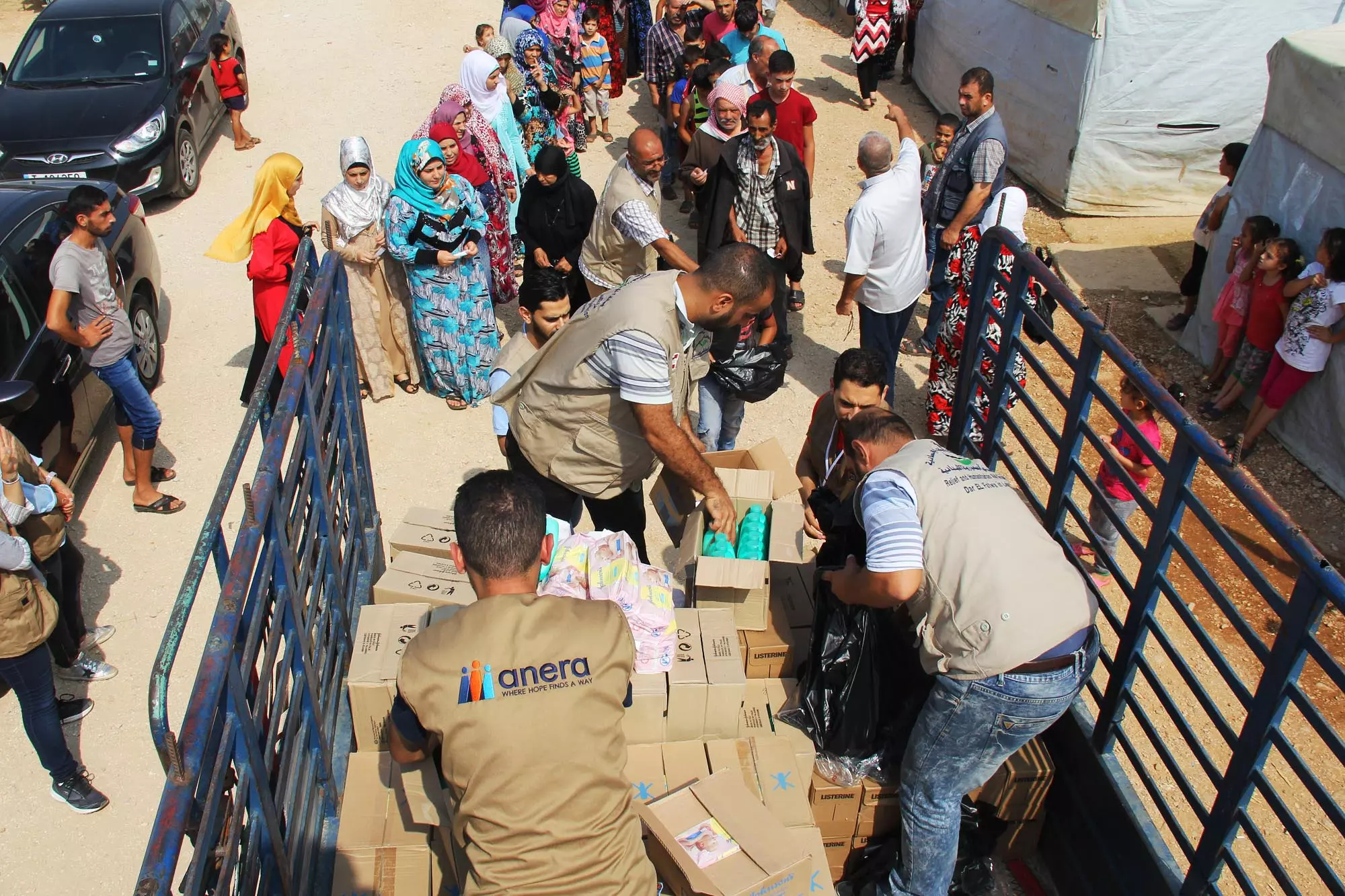

Water and Sanitation
Sanitation and Waste Management
In Lebanon, there is a huge demand for sanitation management. Proper waste disposal and sewage management is vital to a community’s health and, in rural areas such as Akkar, this need is heightened. The village of Mashha was one such area impacted by the need for proper sanitation management. Mashha’s population surged due to the Syrian refugee crisis. The fee to dump trash at the Srar landfill doubled, putting a heavy financial strain on the village.
In cooperation with Mashha’s municipality, Anera implemented a holistic and sustainable project on waste management. The project included community-based activities to raise awareness on environmentalism and the importance of recycling as well as the construction of sorting and composting facilities to treat waste properly. We also distributed two recycling bins to each of the 1,200 households in Mashha. A group of 33 volunteers followed up with residents to ensure that waste was sorted properly.
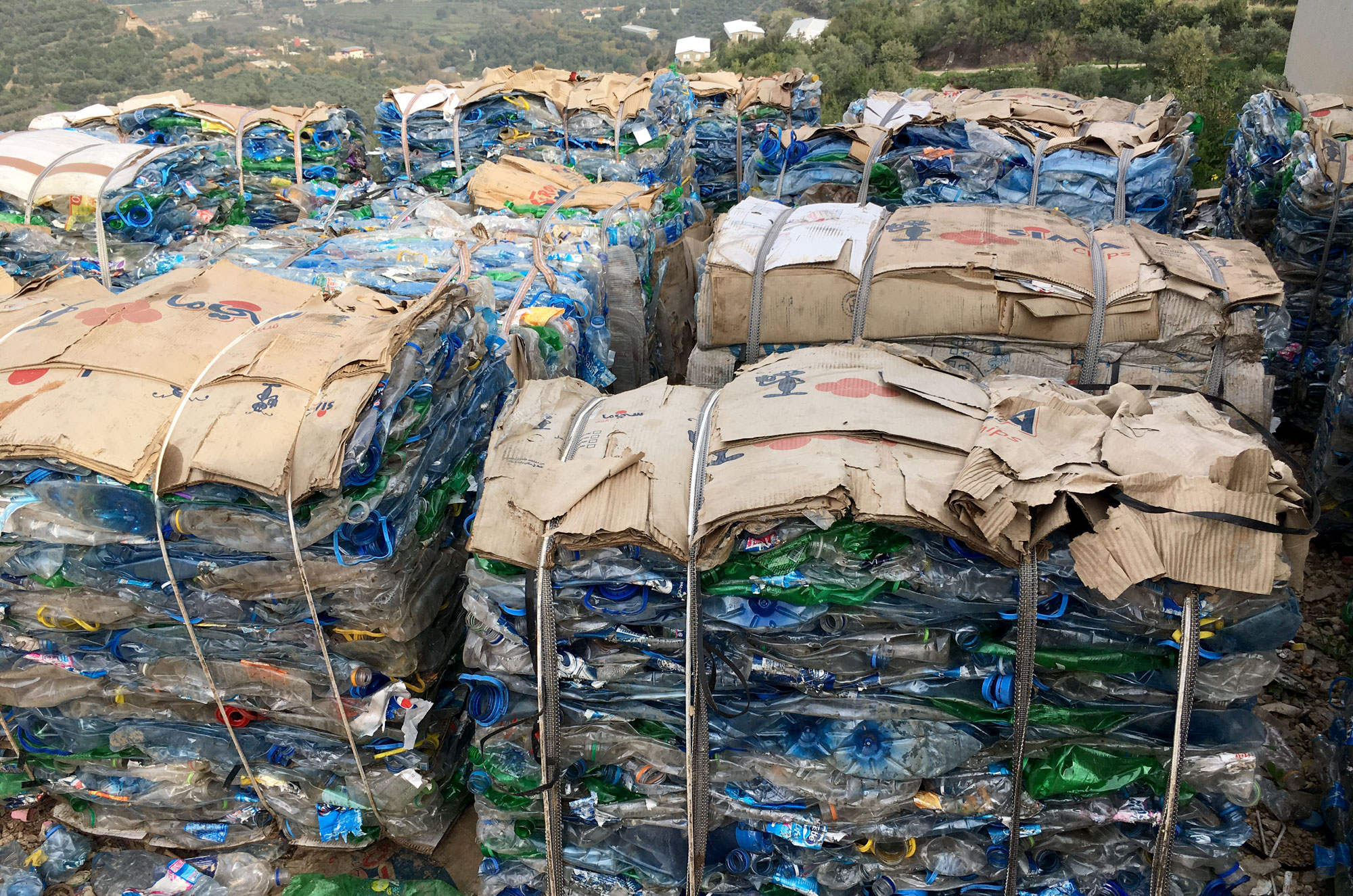

In 2018, Anera expanded the scope of the waste management project in Mashha to include composting of organic wastes, serving 1,200 households in the northern village. An Anera agricultural consultant assisted with the technical aspects of the construction of the sorting facility and trained municipality members and facility staff on the composting process. Anera also briefed farmers from the village on the benefits of composting for their crops and provided process guide to ensure the sustainability and adequacy of the compost processes beyond the project’s lifecycle.
The facility serves all 9,500 residents in Mashha, of which about 3,000 are Syrian refugees, and it has the capacity to receive additional volumes of waste from nearby villages in the future. Since Anera constructed the sorting facility, the amount of waste has decreased by about 30%.
Community
Community development was the focus of Anera’s first program in Akkar and continues to be the focal point of numerous projects today. As a region heavily affected by the conflict in Syria, the rising refugee population fuels tensions among residents who are already suffering from the economic impact of the war on their border. Anera delivers variety of community projects aimed at empowering and bringing together youths of different backgrounds and promoting dialogue and social integration among Palestinian, Syrian, and Lebanese youths.
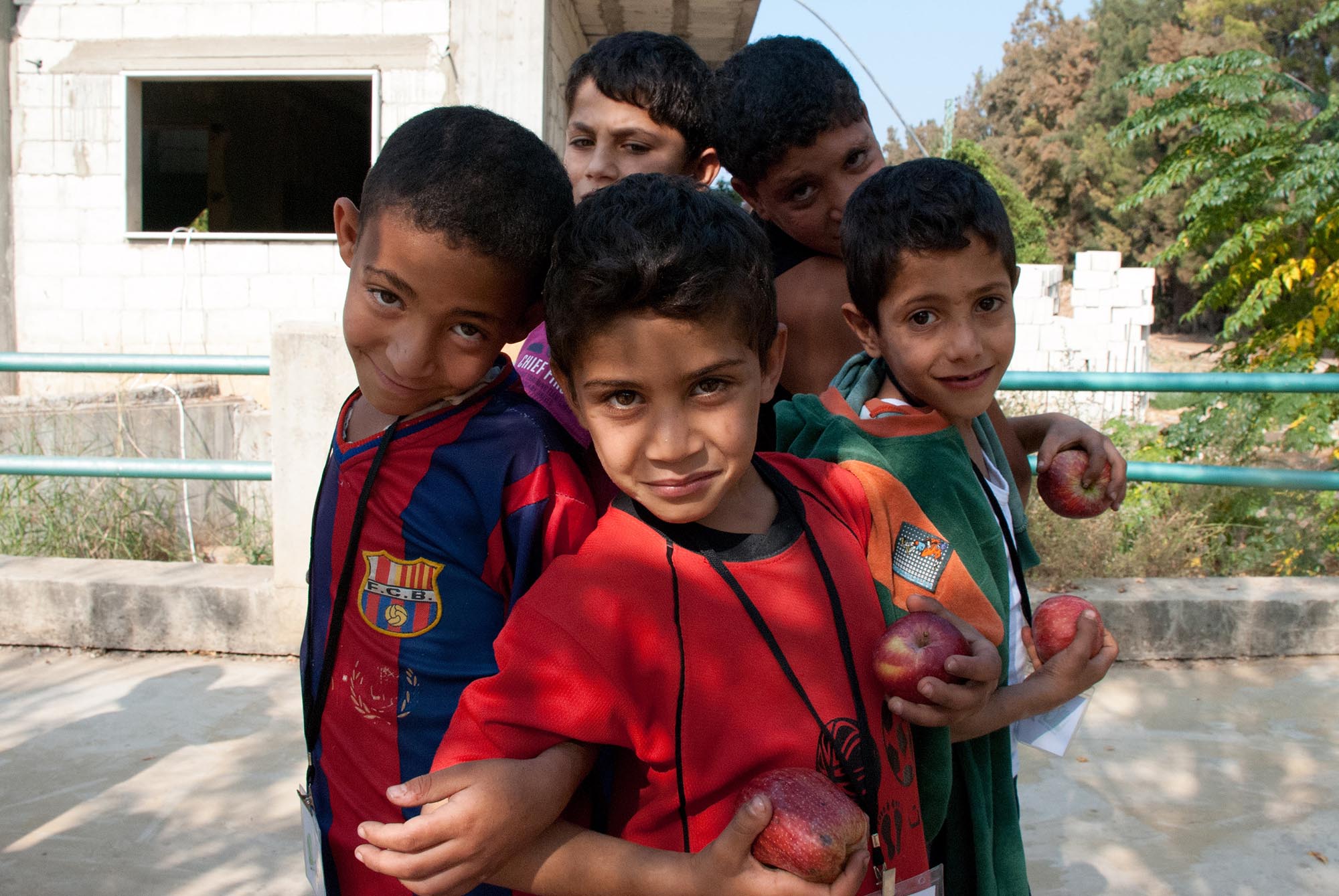

Sports for Peace
Anera’s sports program has been active in Akkar since 2014. Youth members of sports clubs from different neighborhoods are able to play together in soccer tournaments, go on outdoor trips, and attend open peace-building events. They also play board games and engage in group activities, all designed to foster dialogue and create a sense of community.
The program was expanded in 2016 to include trainings for coaches, empowering them to become role models and actors of social change. Anera launched several life skills and technical training sessions for 28 coaches in Akkar, instructing them in skills such as conflict mediation.
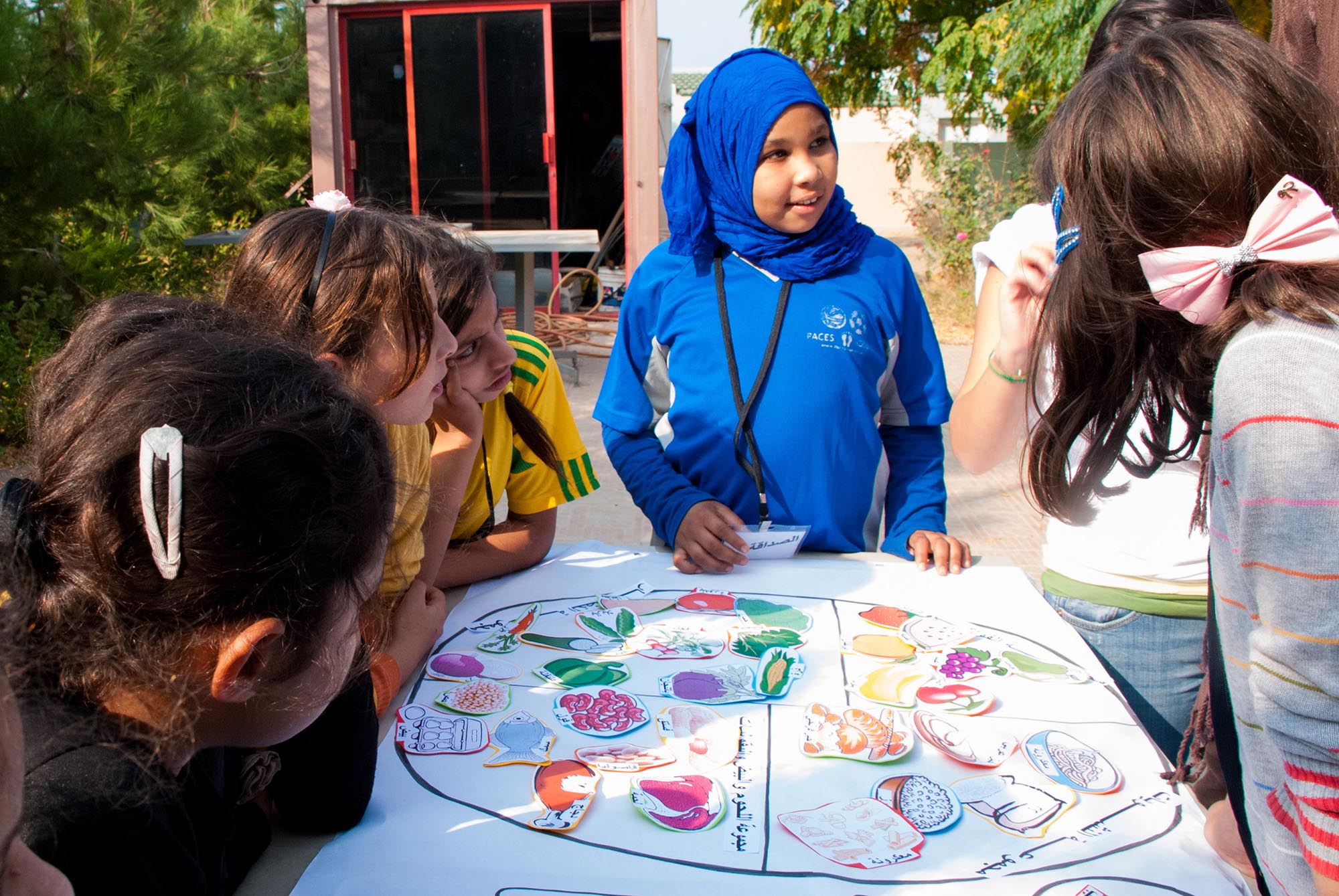

Safe Sports Fields and Playgrounds
In order for sports and recreation to be effective for community development, safe sports fields and playgrounds must be available. In 2015 and 2016, Anera rehabilitated sports fields and playgrounds at the Urda tent settlement (a refugee camp housing 1,400 Syrian refugees), Mhamara, Berkayel, Khreybet el Jundi, Mashha and Fneydek. Some 8,000 youth can now enjoy playing in together in areas created for the purpose of having fun and playing sports.
Humanitarian Relief
Winterization
The winter months can be brutal in northern Lebanon, particularly for those without proper housing and infrastructure. Winter storms can bring freezing temperatures, heavy winds, snow and rain, particularly in the higher elevations, all of which add to the hardship for refugees living in camps and makeshift shelters. These conditions can be deadly. To help prepare vulnerable families in Akkar for the cold weather, Anera has for several years provided winterization kits to those in need. We distribute supplies ranging from winter blankets and emergency lights to children’s winter clothing kits, aiming to relieve the families’ economic burden as they cope with difficult winter seasons.
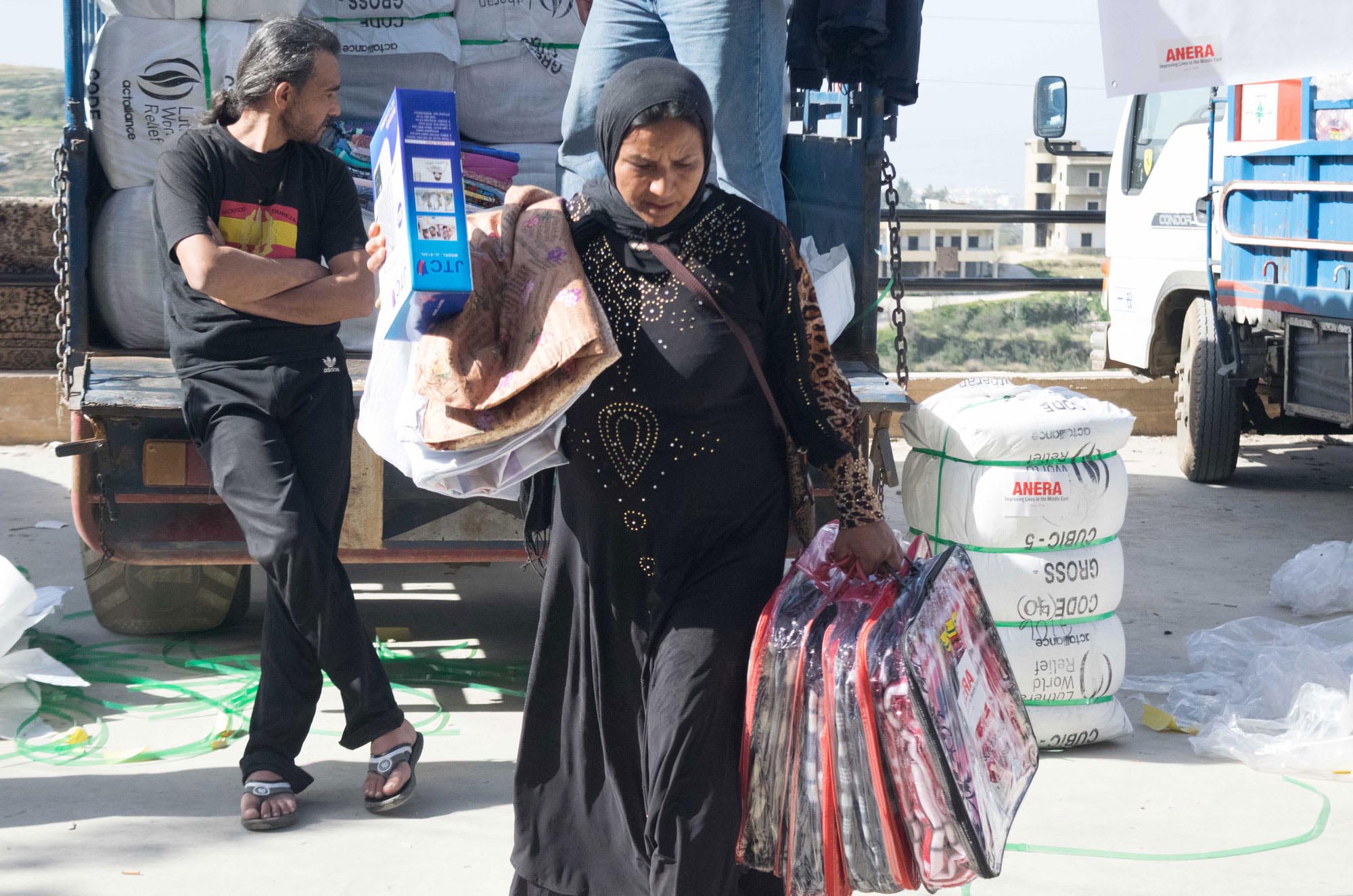

Food Security Assistance
Lebanon faces a multifaceted crisis that includes socio-political instability, the COVID-19 pandemic, and an economy marked by currency controls, shortages of critical goods, and hyperinflation. The August 2020 Beirut explosion further exacerbated these challenges, with immediate human and financial losses and a response effort complicated by the coronavirus.
Lebanon now faces an unprecedented food security crisis. Inflation of food prices has skyrocketed, and over 80% of the population is struggling to keep up with the ever-increasing cost of living. During Holy Month of Ramadan, prices spike significantly, increasing the pressure on humanitarian agencies to escalate food assistance interventions.
In 2021 Anera, in coordination with local municipalities and civil society organizations, began delivering Ramadan food parcels to households in Akkar. The contents ensure both cultural appropriateness and nutritional diversity, including items from different food groups like rice, beans, tuna, vegetables, cooking oil and spices. The parcels provide needed sustenance to participating families for the entire month of Ramadan.
Crisis Response
While cold weather comes every year, emergency situations occur unexpectedly. In 2021, a fuel tanker explosion in Akkar killed 28 people and injured far more. In response to the blast, Anera supported several hospitals that received burn patients. We sent medical aid quickly and provided a special grant to help healthcare centers procure medical supplies in the local market. The grant included tens of thousands of dollars worth of drugs and medical supplies. Our shipment included medication for inflammation, sedatives, anesthesia, fluids and electrolyte replacements, as well as hospital gowns, gauze rolls, bandages, and other essential items.
